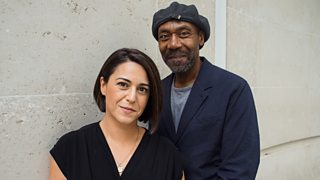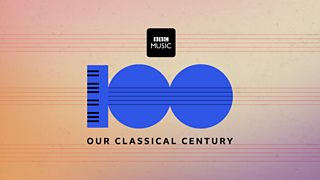
Michael Tippett: A Child of Our Time
A piece written in wartime with pacifism at its heart.
19 March, 1944. The premiere of a new oratorio by Michael Tippett is about to place at the Adelphi Theatre in London. The assembled forces are impressive: the London Philharmonic Orchestra, Morley College Choir, the London Region Civil Defence Choir and soloists including Peter Pears and Joan Cross. Benjamin Britten is milling about, too; he has helped to organise the concert, scraping together enough money to pay the musicians at least something resembling a fee.
But the premiere of A Child of Our Time should have happened two years earlier. That’s when Tippett finished the piece - but since then, the manuscript has been sitting in a drawer. This is on the advice of the conductor Walter Goehr, who shrewdly recognised that the very passionate pacifism in the music might not go down too well in wartime London. He has a point; Tippett would subsequently be imprisoned for refusing to take part in any aspect of the war effort. Now he's free, the moment has come to share his musical manifesto.
Through the 1930s, Tippett had watched the political deterioration in Germany with horror. He began to feel it was his moral duty as a composer to offer a response, and after the events of Kristallnacht (when the Nazis killed nearly 100 Jews in retaliation for the shooting of a German diplomat) he settled on an oratorio in the model of Bach’s Passions and Handel’s Messiah: in other words, a drama with pauses for contemplation. He asked his friend TS Eliot to write the text, but Eliot knew better. Write the whole thing yourself, he told Tippett. Music and words. Tippett got to work on the day Britain declared war on Germany.
A Child of Our Time is of its time, but it’s also of all time. "The world turns on its dark side,” it begins, setting in a motion a great rotation of the cosmic seasons. It’s winter: we’re plunged into social disunity and xenophobia. But there’s also hope: at the heart of the oratorio are five Negro spirituals that perform the function of the chorales in a Bach passion with moments of communal reflection. Tippett wanted us to reach out to those who disagree. He wanted us to recognise our own tendencies towards selfishness, as well as towards compassion. In the end, the world keeps on turning. “The moving waters renew the earth,” sings the alto, “it is spring.”
Just imagine being at the Adelphi Theatre that night in 1944 to hear the anxious lines of the soloists finally softening into the gentle consolation of Deep River.
This is one of 100 significant musical moments explored by �鶹������ҳ��� Radio 3’s Essential Classics as part of Our Classical Century, a �鶹������ҳ��� season celebrating a momentous 100 years in music from 1918 to 2018. Visit bbc.co.uk/ourclassicalcentury to watch and listen to all programmes in the season.
This archive recording features the �鶹������ҳ��� Symphony Orchestra and Chorus with conductor Andrew Davis and soloist Nicole Cabell, Karen Cargill, John Mark Ainsley and Matthew Rose.
Duration:
This clip is from
Featured in...
![]()
The music of Our Classical Century—Our Classical Century
100 recordings to celebrate 100 years of exciting, inspirational, rule-busting music.
More clips from Our Classical Century
-
![]()
Step outside your musical tribe
Duration: 02:49



